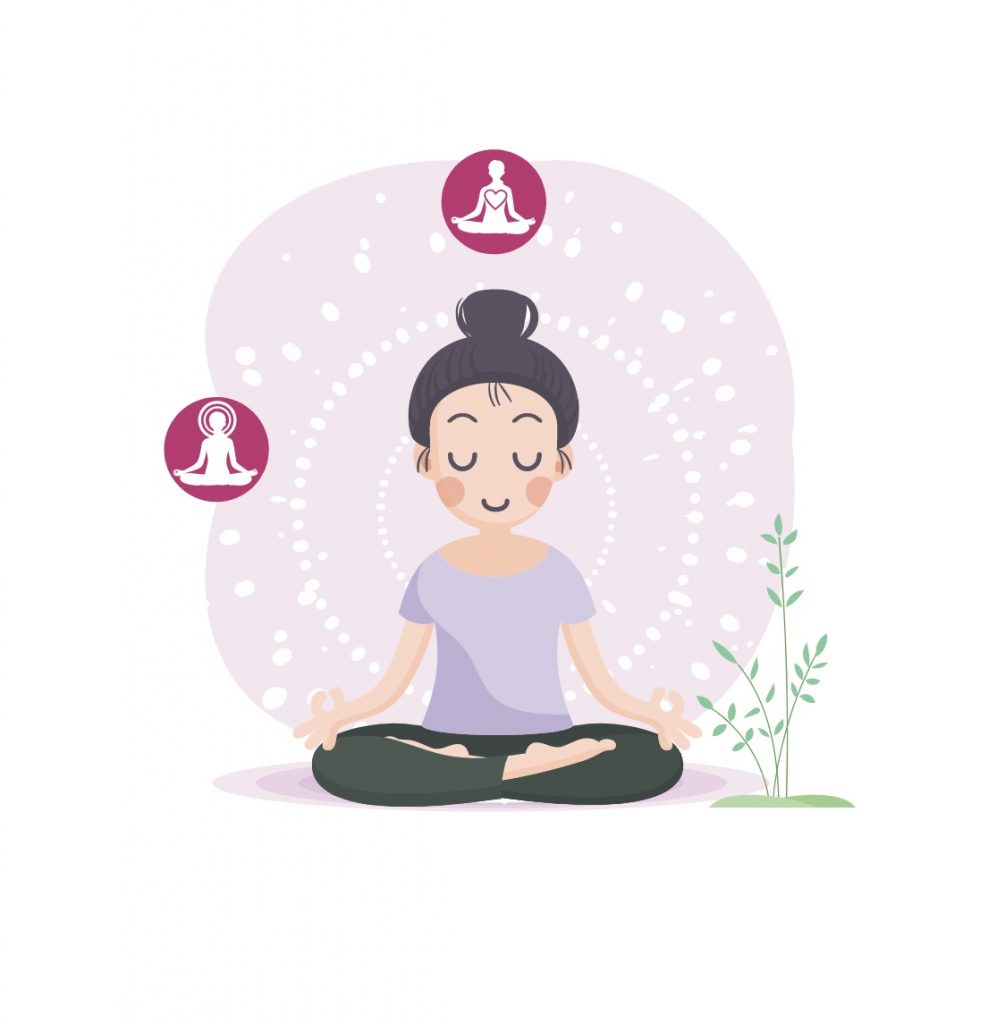
With school, friends, sports, and relationships squeezed into 1 day, high schoolers’ lives become very fast paced. School students are under constant stress, pressure, and anxiety. Our minds are constantly thinking. We think about things that happened a few years ago, we sometimes think about what’s happening now, and most often worry about what will happen in the future. Our mind jumping between these time zones and thoughts is what causes stress.


Due to the neuroplasticity of young minds, students are more responsive to their brain changing and reorganizing through different experiences and connections. It is essential that we build and teach the skill of mindfulness and mental health care at an early age to help them retain the skill throughout their lifetime.
Research from Harvard Medical School shows that yoga practice in schools leads to:


Many companies already incorporate meditation and mindfulness into their work hours…
Deepak Chopra“Stress is the no. 1 epidemic of our civilization. Indirectly or directly, it’s related to things like insomnia, anxiety, fear, but [also] cardiovascular illness, inflammation in the body, heart disease, autoimmune illnesses. Many kinds of cancer are connected directly or indirectly to inflammation in the body. So meditation is a very effective way to start tackling this problem, this epidemic of stress."
Mindfulness in Workplace improves:
Millions of teens experience this everyday…
Current Student Health Statistics
49% percent of students reported feeling “a great deal of stress” on a daily basis. 26% percent noted that they had been diagnosed with depression.
Each day in our nation, there are an average of over 3,470 suicide attempts by young people grades 9-12.
More teenagers and young adults die from suicide than from cancer, heart disease, AIDS, birth defects, stroke, pneumonia, influenza, and chronic lung disease, COMBINED.
The latest Stress in America survey from the Washington, D.C.-based American Psychological Association shows that teens aren’t using healthy methods to cope with their problems.

At the start of the school year at Marblehead High School in Massachusetts, students started moving their desks out of the way, grabbing a mat and laying down on the floor for guided meditation before French class. Lexxi Seay, a senior, was skeptical.

Source: https://www.cnn.com/2016/02/08/health/mindfulness-teenagers-schools-stress/index.html
“I actually never believed really in meditation…I thought it was a joke,” she said.
post-meditation, the same girl says…
“It helps so much. It really does,” said Lexxi, 18, who has been diagnosed with anxiety disorders. “I tend to be less anxious afterwards. Let’s say I am having a real hard day at school and then I go to French and we meditate for 10 to 15 minutes, I feel so much better. No anxiety, no stress, just relaxed.”
In school, you are taught the importance of physical fitness and keeping your body healthy, but you are never taught how to keep your minds and mental state healthy. We are all expected to lead a balanced and stress-free life, but we are never taught how. In today’s modern day world, we face many distractions that brings unnecessary and unwanted thoughts.
Our mission is to educate about mental health by integrating mindfulness/meditation practices directly into school curriculums and workplaces.
What does meditation and mindfulness do for me?
Meditation and mindfulness practices can teach you to how to create a space between the stimulus and the reaction. Taking a moment to regain your thoughts before reacting to a troublesome stimulus can make all the difference in the end result. This can be seen through your everyday relationships — for example, if your classmate is bothering you, instead of lashing out and receiving negative consequences, if you use your mindfulness practices to create space between yourself and the reaction, you can bring a more positive response to the problem. Teaching these skills in school is essential to helping students develop the mental strength that they need to apply these techniques to more serious situations in life.
This is an essential tool that you can carry throughout your life. We hope that you can benefit from this program both in your academic life and in your personal life. In order to make stronger connections with the world around us, we must first establish a strong connection with ourselves.
We need to educate our students not only with math and english, but also how to cope with excessive stress and the problems in life. Emotional intelligence is just as important.
We need to offer a simple, yet effective coping method in school for students to turn to, and mindfulness & mental health education is best proactive approach towards a solution.
